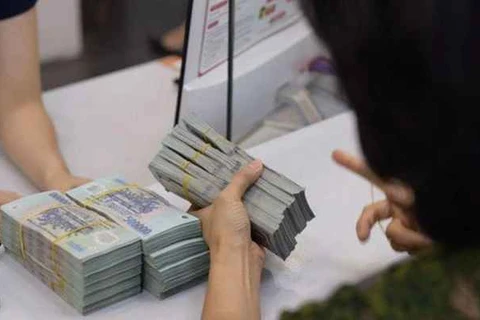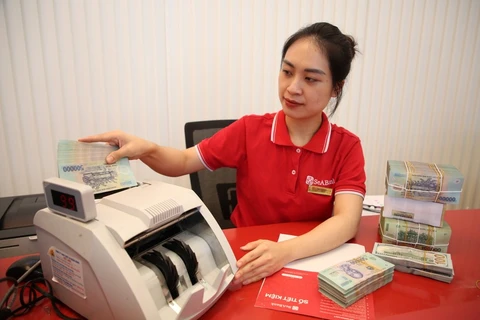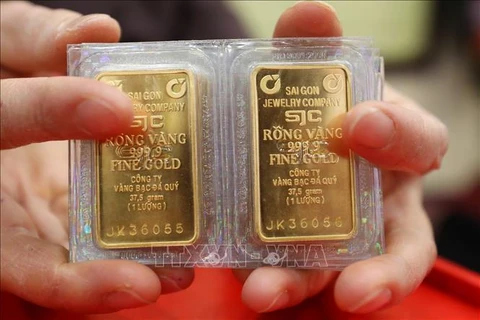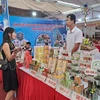Hanoi (VNA) - Despite current upward fluctuations in the exchange rate, experts anticipate a cooling off later this year, contingent on the Federal Reserve's decision to cut interest rates.
The USD/VND exchange rate has experienced a significant surge in the early months of 2024, reaching record highs.
From the beginning of March, the selling price of USD at Vietcombank and other banks has hovered between 24,900 and 24,960 dong, marking the highest transaction price in history. The price is approximately 2% higher than at the year's start. On the free market, the USD rate even approached a nearly 4% increase.
The spike in exchange rates has posed the greatest challenge to businesses reliant on imports and those with substantial USD loan obligations.
Dang Ngoc Hoa, Chairman of Vietnam Airlines, mentioned that a 1% hike in the exchange rate translates to an additional 300 billion dong (12.15 million USD) in costs for the company. Thus, with a 4% fluctuation, akin to the current free market rate, Vietnam Airlines could face an increase of about 1,200 billion dong (48.58 million USD) in expenses this year.
Likewise, Le Manh Hung, Chairman of the Vietnam Oil and Gas Group (PVN), noted the group's foreign currency debt is around 38 trillion dong, or about 1.55 billion USD. Any rise in the exchange rate severely inflates the group's operational costs, adversely affecting its productivity and business outcomes.
While theoretically, an increased exchange rate should harm importers but benefit exporters, the reality is that most exporting firms also rely heavily on imports, thus mitigating potential gains.
For example, according to Tran Huu Hau, Deputy Secretary-General of the Vietnam Cashew Association, the cost increase in raw cashew imports elevates the final product price, impacting competitive ability.
Although export firms theoretically benefit from exchange rate variances upon receiving foreign currency from exports, rapid increases in the exchange rates diminish these advantages over time.
In the wake of rising exchange rates, Dr. Nguyen Tri Hieu advised import businesses to consider exchange rate risk mitigation tools and scrutinize the terms of foreign currency loans. He said to pay specific attention to those with floating interest rate conditions, in anticipation of a potential Federal Reserve rate cut by the end of 2024.
The recent uptick in the USD price stems partly from an estimated 18.0% increase in import turnover, reaching 54.62 billion USD, or an 8.33 billion USD rise compared to the previous year.
Experts indicate that while foreign direct investment (FDI) companies may gain from the current exchange rate trends, domestic companies tend to suffer more, with exchange rate hikes also increasing the risk of import inflation.
Dr. Can Van Luc stressed that given the present circumstances of exchange rates and credit, the State Bank of Vietnam should avoid further reductions in operational interest rates.
A continuation in rate cuts would only exacerbate the USD/VND interest rate differential, adding more pressure to the exchange rate.
Experts believe exchange rate pressures could subside in the second half of the year as the supply of foreign currency improves and the Fed potentially reduces interest rates.
Adjustments in the State Bank's gold market management policy might positively influence the exchange rate./.
























